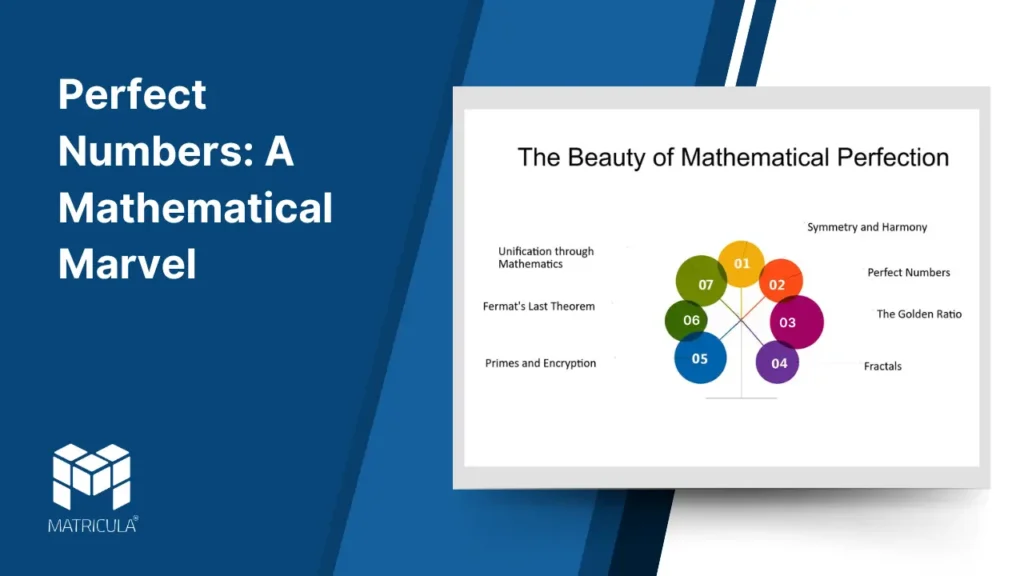Perfect numbers are a fascinating concept in mathematics, admired for their unique properties and deep connections to number theory. These numbers are as mysterious as they are beautiful, inspiring curiosity and exploration among mathematicians for centuries.
What Are Perfect Numbers?
A perfect number is a positive integer that equals the sum of its proper divisors, excluding itself. Proper divisors are numbers that divide the number evenly, apart from the number itself.
For example:
- The divisors of 6 are 1,2, and 3. The sum of these divisors is 1+2+3=6, making 6 a perfect number.
- Similarly, 28 is perfect because its divisors 1,2,4,7, and 14 add up to 28.
Properties of Perfect Numbers
Even Nature:
- All known perfect numbers are even. It remains an open question in mathematics whether odd perfect numbers exist.
Connection with Mersenne Primes:
- Perfect numbers are closely linked to Mersenne primes, which are prime numbers of the form 2n−1.
- The formula for generating even perfect numbers is:
N = 2n−1×(2n−1),
where 2n−1 is a Mersenne prime. - For instance, when n = 2, 22−1 = 3 (a Mersenne prime), and the perfect number is 22−1×3 = 6.
Abundance and Deficiency:
- Numbers are classified as abundant, deficient, or perfect based on the sum of their divisors. Perfect numbers are rare and represent a balance between abundance and deficiency.
Examples of Perfect Numbers
The first few perfect numbers are:
- 6
- 28
- 496
- 8128
These numbers grow rapidly in size, with each subsequent perfect number being significantly larger than the previous one.
Historical Context
The concept of perfect numbers dates back to ancient Greek mathematics. Euclid, in his seminal work Elements, established the connection between perfect numbers and Mersenne primes. Centuries later, Swiss mathematician Leonhard Euler proved that every even perfect number can be expressed using Euclid’s formula, solidifying the link between the two.
Applications of Perfect Numbers
While perfect numbers are primarily studied for their theoretical significance, they have applications in areas such as:
Cryptography: The connection between perfect numbers and Mersenne primes is crucial in modern encryption algorithms.
Number Theory: Perfect numbers provide insights into the properties of divisors and the structure of integers.
Recreational Mathematics: They are a source of curiosity and exploration, encouraging mathematical inquiry.
Open Questions and Mysteries
Odd Perfect Numbers: Despite centuries of research, no odd perfect number has been discovered. If they exist, they must be extraordinarily large.
Infinitude of Perfect Numbers: It is unknown whether there are infinitely many perfect numbers, though many mathematicians suspect there are.




